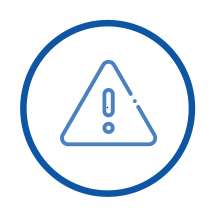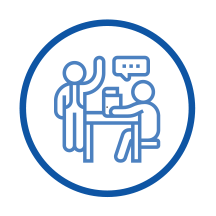PRIORITY 4: Programs, Initiatives, and Strategies
READY FOR COLLEGE AND CAREER
All Maryland students graduate from high school college and career ready, and with an individualized plan to succeed in college, career, and life.

Set a new evidence-based College and Career Readiness (CCR) standard that moves beyond standardized tests, and ensure equitable access to post-CCR pathways.
Ensure the adoption of High-Quality Instructional Materials (HQIM) across every school, including the necessary training required for successful implementation.
Adopt an Early Warning System (EWS) tied to high-quality and timely interventions, including strengthening the implementation of Maryland’s 9th Grade On-Track measure across local school systems.
Build and sustain an infrastructure for High-Quality, School Day Tutoring across Maryland, including the use of flexible scheduling strategies such as block scheduling to support the academic and developmental needs of students.
Set a new evidence-based College and Career Readiness (CCR) standard that moves beyond standardized tests, and ensure equitable access to post-CCR pathways.
Ensure the adoption of High-Quality Instructional Materials (HQIM) across every school, including the necessary training required for successful implementation.
Adopt an Early Warning System (EWS) tied to high-quality and timely interventions, including strengthening the implementation of Maryland’s 9th Grade On-Track measure across local education agencies.
Build and sustain an infrastructure for High-Quality, School Day Tutoring across Maryland, including the use of flexible scheduling strategies such as block scheduling to support the academic and developmental needs of students.
Interim College and Career Readiness Standard
Student achievement, graduation rate, and postsecondary enrollment data for Maryland students, especially for underserved student populations, signal the need to rethink how we prepare our students to succeed in and through college and in their careers. Currently, a student meets the interim College and Career Readiness (CCR) standard if they meet or exceed the standards in both English and math. Through our engagement, we identified guiding principles for the implementation of a new CCR system grounded in moving beyond using standardized test scores as the only measure of readiness, equitable access to post-CCR pathways, and pathways that enable students to explore elective enrichment and academic opportunities.
CCR Research Studies
MSDE commissioned two research studies to determine the skills and knowledge necessary to succeed in an entry-level college course. Both studies explore alternative methods of demonstrating readiness, such as GPA and course completion.
Exploratory Study
MSDE partnered with the Maryland Assessment Research Center (MARC) at the University of Maryland to complete a short-term quantitative study to explore the relationship between high school state and national standardized tests, and other potential predictors of success (such as course grades), and success in postsecondary coursework and/or workforce outcomes.
Long Term Study
MSDE has partnered with American Institutes for Research to perform a deep content analysis to determine the skills and knowledge necessary to succeed in the first year at a community college or 4-year college or university in Maryland. The preliminary report findings support that adding an alternative way to meet the CCR standard with high school GPA increased the percentage of students who meet the CCR standard from 40% to 64% and improved accuracy rates in determining college ready or not college ready from 65% t0 75%.
As specified in the Blueprint, American Institutes for Research will submit their final research report to the Governor, the Maryland General Assembly, the Accountability & Implementation Board, and the Maryland State Board & Department of Education on or before September 1, 2023.
Interim College and Career Readiness Standard
Student achievement, graduation rate, and postsecondary enrollment data for Maryland students, especially for underserved student populations, signal the need to rethink how we prepare our students to succeed in and through college and in their careers. Currently, a student meets the interim College and Career Readiness (CCR) standard if they meet or exceed the standards in both English and math. Through our engagement, we identified guiding principles for the implementation of a new CCR system grounded in moving beyond using standardized test scores as the only measure of readiness, equitable access to post-CCR pathways, and pathways that enable students to explore elective enrichment and academic opportunities.
CCR Research Studies
MSDE commissioned two research studies to determine the skills and knowledge necessary to succeed in an entry-level college course. Both studies explore alternative methods of demonstrating readiness, such as GPA and course completion.
Exploratory Study
MSDE partnered with the Maryland Assessment Research Center (MARC) at the University of Maryland to complete a short-term quantitative study to explore the relationship between high school state and national standardized tests, and other potential predictors of success (such as course grades), and success in postsecondary coursework and/or workforce outcomes.
Long Term Study
MSDE has partnered with American Institutes for Research to perform a deep content analysis to determine the skills and knowledge necessary to succeed in the first year at a community college or 4-year college or university in Maryland. The preliminary report findings support that adding an alternative way to meet the CCR standard with high school GPA increased the percentage of students who meet the CCR standard from 40% to 64% and improved accuracy rates in determining college ready or not college ready from 65% t0 75%.
As specified in the Blueprint, American Institutes for Research will submit their final research report to the Governor, the Maryland General Assembly, the Accountability & Implementation Board, and the Maryland State Board & Department of Education on or before September 1, 2023.
College and Career Pathways
Students have access to all pathways at no cost to themselves or their families. Career counseling programs will aid students in choosing a post-CCR pathway. Local school systems must support students through the successful completion of post-CCR pathways in addition to supporting them in achieving College and Career Readiness as outlined in their individualized CCR plans.
COLLEGE PREP PROGRAMS
- International Baccalaureate (IB) Diploma Programme
- Cambridge AICE Diploma Program
- A comparable program consisting of Advanced Placement courses specified by the College Board
EARLY COLLEGE AND DUAL ENROLLMENT PROGRAMS
- An associate degree
- At least 60 credits towards a bachelor’s degree
CAREER AND TECHNICAL EDUCATION (CTE) PROGRAMS
- An industry-recognized occupational credential or postsecondary certificate
- A registered apprenticeship program
- A youth apprenticeship program



